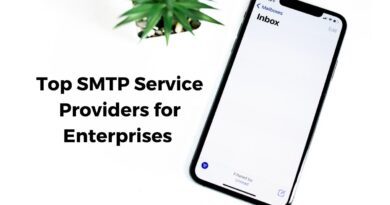7 Tips to Boost your Network Security
Cyber-crime has been a thorn in the FBI’s side for many years and they have a huge cyber-crime department that is tasked with investigating complaints of online fraud, something that is more common than you might believe. We never get to hear about SMEs that become victims of cyber-crime, aside from the odd huge hack that makes the news headlines and if you would like to assess and improve your cloud network security, here are some valuable tips.
- Increase the strength of your passwords – Your network administrator can call for stronger passwords, which should be changed on a regular basis. Tips for creating passwords include a minimum of 12 characters, mix lower and uppercase, while adding symbols and numbers. We recommend using password creation software and browsers will remember these for convenience.
- Create a device whitelist – If your employees use their own digital devices, you can create a whitelist that allows only authorized devices to access the network. In the event an employee’s cell phone has a virus, this could be transferred onto the network and creating a whitelist reduces the risk of a data breach. If you come across devices that cause issues, simply create a blacklist to make sure known bad devices are not given access. Every digital device has its own unique digital ID and blacklisting automatically detects blacklisted devices.
- Use a secure cloud network – The best network security solutions in Charlotte are just a few mouse clicks away and with 24/7 cyber-security and automated data backup, your data is safe from hackers. Fixed rate networking makes it much easier for you to budget and if you have any issues, your IT support partner has you covered. Whether you have a network administrator or not, a local managed IT services provider can make sure that your network is always online.
- Make staff aware of phishing techniques – Today’s hacker is very creative at trying to gain access to networks and computers; phishing is a technique to elicit personal information from users and once employees understand these techniques, they are less likely to fall victim to this type of cyber-attack. An example of phishing would be when a person receives a message from their bank, asking them to follow the link and input certain information that they claim they have lost. The website looks real enough and most people assume it is the real thing and type in the information they request. They might tell you their database was hacked, so you need to create a new username and password. Phishing is on the rise and if everyone knows about this, it will no longer be effective.
- Automated backup – You may have heard of ransomware; which is a common method of extracting money from businesses; how does it work? The hacker encrypts your data and then you receive a message telling you to send Bitcoin in order to be able to unlock your data; of course, this doesn’t work if you have automated backup systems in place. Any accidental deletion of data could be disastrous – store on the cloud and have professionals managing your network.
- Use a firewall – A firewall is simply another barrier for the hacker to negotiate and the more you put in front of him, the less likely he is to succeed. This applies to private and business users alike and there are free apps if you search online, although you are much better off with a paid firewall, as it has many appealing features and no annoying ads. Here is some more important information about network security, which is well worth the read.
- Never open unannounced email attachments – It usually starts with a surprise email informing you’ve won a prize (click on the attachment to see what you have won) and once the .exe file is activated, the malicious code is copied onto your drive and that’s game over. Whatever the code is designed to do, it will implement as instructed and can even hide itself in the registry. If an unknown email arrives with an attachment, immediately quarantine it, which prevents it from doing what it is meant to do.
The FBI have a website dedicated to cyber-crime and should you ever become the victim of a hacker, do make contact, as the authorities might be able to prosecute the offender. There are many levels of hackers, from the small-time operator that sends our Internet bots to look for unprotected users, to the elite hacker who spends their time infiltrating major bank and credit card companies, or they hack to order. A company might hire them to steal design data from a rival firm, industrial espionage is one way of putting it.
Don’t take any chances with your business data and talk to a leading Charlotte IT services provider who have all the security solutions.




